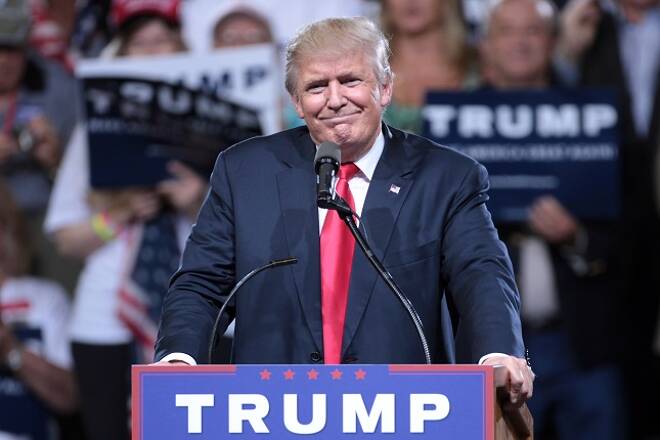Advertisement
Advertisement
The Impact of Trump and Brexit in 2017
By:
The year 2017 is shaping up to be one of the most volatile and exciting times for the financial markets in recent years and we believe that two events in
The year 2017 is shaping up to be one of the most volatile and exciting times for the financial markets in recent years and we believe that two events in particular will play the most important part on how the year unfolds.
As the whole world already knows, Donald Trump has been elected president of the United States and is due to be sworn into office at the end of this week, which is bound to set off a chain of events that may leave investors who are holders of the US dollar feeling pretty good if Trump follows through on some of his policy promises.
The first policy on Trumps agenda is the proposed introduction of Tariffs on all imports coming into the country which is supposed to help the economy as more manufacturing will be done in the US which will boost jobs and create a significantly higher demand for the US dollar.
Many say that although the tariffs will be on all goods from all countries, the main aim of the move is towards China, and although there may be some benefits in the short term, the long term implications may be very damaging to the world economy as China is forced to retaliate, “If tariffs are more punitive and lead to a public trade spat with China, markets will get nervous, especially if a sharp, retaliatory, [Chinese yuan] depreciation looks like a realistic response,” said Ajay Rajadhyaksha, head of macro research at Barclays.
If the US does introduce the tariffs, other countries may follow suit to stop the added flow of goods which would otherwise had gone to the US. That will put pressure on the currency markets, “If other countries follow this pattern, it could lead to a downward spiral or litigation at the World Trade Organization depending on the specific measures, retaliatory action from elsewhere could be expected while the risk of trade and currency wars could grow,” said Janet Henry, chief global economist at HSBC.
Another one of Trumps policies which may also give the US dollar a boost is the proposed plan to open up federal lands for oil production which will likely flood the market with oil. As a reaction, we might see the oil prices tumble. The US already produces enough oil to be self sufficient and if they open up more land for drilling they are probably going to be a big exporter of oil which will create a huge demand for the greenback.
The Trump administration also plans to cut corporate taxes from 35% (one of the highest amongst developing countries) to 15% which most analysts predict will see many companies relocate their main offices to the US to conduct business which again create immense demand for the US dollar.
Although a stronger dollar may be good for some, there are other industries that suffer, especially if they are dealing in other currencies “At some point the strength of the U.S. dollar may well start to impact on U.S. corporate profits, For now U.S. investors don’t seem too concerned about that prospect, so caught up are they in the euphoria of the ‘Trump trade,’ but at some point overseas profits will take a hit in currency terms.” Noted Michael Hewson, chief market analyst at CMC Markets.
Another major factor that is bound to create volatility in the currency markets is the Brexit factor where Britain voted to leave the European Union with the process set to begin in March when British prime minister Theresa May invokes article 50 which will start the process of Britain’s exit.
Up until 1 month ago analysts thought that the UK would broker some sort of deal that would allow them to keep access to the single market and therefore make the effects of Brexit less worrying.
But comments and statements by Prime Minister May during the previous week, where she noted that Britain plans to control immigration and not allow the flow of people through its borders have investors predicting a “Hard Brexit” meaning that the government is prepared to forgo the single market in order to control immigration.
“She(Theresa May) signaled once again that the aim of controlling immigration was a red line she would not be willing to cross,” said Esther Reichelt, a currency strategist at Commerzbank AG in Frankfurt.
“That means that following Brexit the country is likely to lose access to the single market,” she said, If the UK does loose access to the single market, the British pound is expected to come under immense pressure with the currency likely to head down towards around $1.15 against its US counterpart.
So for the foreseeable future it seems like the currency to own is the US dollar with further gains expected as we await Trump and Brexit.
The review was prepared by FIBO Group analyst Andrew Masters.
About the Author
Andrew Masterscontributor
Advertisement
